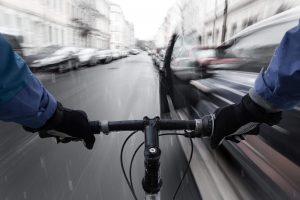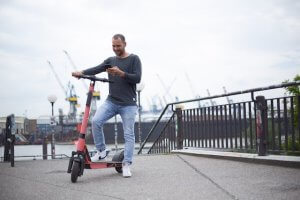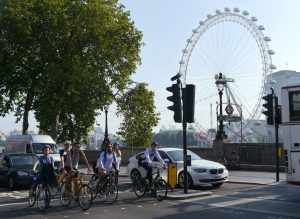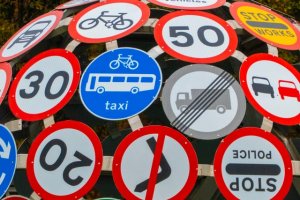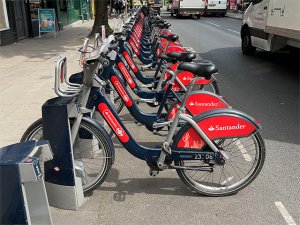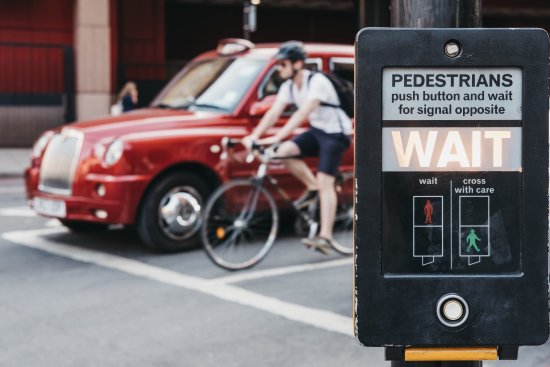Top 10 Major Highway Code Changes for Cyclists
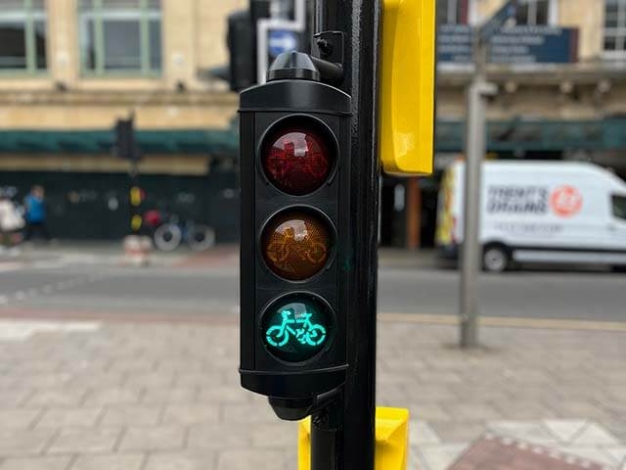
Contact
Table of Contents
New Highway Code rules for cyclists
At the end of January 2022, the Highway Code was updated to make British roads safer for cyclists, horse riders and pedestrians.
The rules were introduced to protect vulnerable users by creating priority for them over quicker and heavier vehicles like cars and lorries.
As many of the rules are legal requirements, it is important that you keep up-to-date with the changes. Here are the top 10 changes for cyclists to help you understand the new rules of the road.
What are the new Highway Code rules for cyclists?
1. Observe the hierarchy of road users
The “hierarchy of road users” places a higher level of responsibility on those road users capable of causing the highest degree of harm. Road users higher up the list have to take greater care to reduce the danger to those lower down the list.
So for example, drivers of vehicles, such as HGVs and buses which have a greater capability of causing harm, now have a greater responsibility to take care and reduce the risk to all other road users. And cyclists should take steps to reduce the risk of harm to pedestrians.
Here’s the new hierarchy:
- Large vehicles like buses and HGVs
- Vans and minibuses
- Cars and taxis
- Motorcyclists
- Horse Riders
- Cyclists
- Pedestrians
2. Give way to pedestrians
When turning into or out of a junction, cyclists, riders and motorists should give way to both pedestrians crossing the road and those waiting to cross. This is the biggest change in the code. Under the old rules, you only had to give way to pedestrians who were already crossing the road.
3. Ride in the middle of the lane
When cycling on quiet roads, roads with slower-moving traffic and when approaching junctions or a narrowing of the road, the Highway Code now advises that you should ride in the centre of the lane to make yourself as visible as possible.
You are advised to return to the left side of the road if a faster moving vehicle approaches from behind or when traffic begins to flow more freely.
4. Proceed with caution at junctions
When cycling straight ahead at junctions, cyclists now have the right of way unless road signs indicate otherwise.
Regardless of which way you’re going, you should approach junctions with caution and make yourself as visible as possible to other road users.
Where the road has special cycle traffic lights, you should use this facility to make your journey safer.
5. Cyclists get priority at roundabouts
The Highway Code now clarifies that priority should be given to cyclists on roundabouts.
Motorists are advised stay behind cyclists approaching a roundabout and not overtake. And they should take extra care when entering the roundabout not to cut you up.
6. Keep safe distances
When cycling on busy roads with faster moving vehicles, you are advised to keep at least 0.5 metres from the kerb edge.
You should also take care when passing parked vehicles. The rules suggest that you leave at least a door width (around one metre) to avoid being hit if a car door is opened.
7. Cycle two abreast
If you are cycling in a group, you can ride two abreast. This has always been the case – although it is often a source of conflict with drivers.
The new rules say that it may actually be safer to ride two abreast, especially when riding with children or less experienced cyclists.
However, you should maintain awareness of drivers behind you and allow them to overtake you when it is safe to do so.
8. Take care in shared spaces
There are new rules in the code about routes that are shared by pedestrians, cyclists and horse riders. Overall, you should put the safety of pedestrians first, but they should also take care for their own safety and not obstruct or endanger you.
Cyclists are asked to:
- Not pass pedestrians or horse riders closely or at high speed
- Not pass a horse on the horse’s left
- Slow down and let pedestrians know you’re there (e.g. by ringing your bell)
- Remember that pedestrians may not be able to see or hear you
9. Rules for safer overtaking
Both motorists and cyclists have rules for safer overtaking.
For cyclists, you will now be able to pass vehicles from either the left or the right when stuck in stationary or slow-moving traffic.
Motorists are permitted to cross a double white line to overtake a cyclist, but only if they are travelling at 10mph or less.
When overtaking generally, motorists should leave at least 1.5 metres between a cyclist and their vehicle when travelling at speeds up to 30 mph.
10. Rules to avoid car dooring
The code contains a new recommendation in relation to door opening called the “Dutch Reach” technique. Drivers and passengers should remember to use the hand opposite the door when opening it. So as an example, you would use your left hand to open a door on your right-hand side.
This technique forces the person opening the door to look over their shoulder making it easier to spot cyclists, motorcyclists and pedestrians passing their vehicle.
Why are the changes to the Highway Code important for cyclists?
The new rules should make the roads safer for the vulnerable road users but they will also impact how the Courts determine liability for injury claims following road traffic collisions.
Generally, we expect the Courts to side with the road user that can cause the lowest level of harm, according to the hierarchy of road users. This has been a legal concept for some time known as ‘causative potency’.
So while the new rules have not been tested in the Courts as yet, we believe that after a collision, cyclists may be able to rely on the new rules to aid them in successfully proving that a motorist was at fault.
Share this article
Speak to us about a cycling accident claim.
Call us 020 7485 8811
Email us Send us an email and we’ll get back to you
Cycling News & InsightsVIEW ALL
- 28.2.2023
Do you have to wear a bike helmet?
Should bike helmets be mandatory in the UK? Recently, Dan Walker was involved in a nasty collision with a motorist...
Read more - 20.1.2022
Knocked off your bike? What to do next
Now more than ever before, people are embracing the pleasures and benefits of cycling in and around London. Unsurprisingly, the...
Read more - 16.9.2021
The law around E-bikes and E-scooters explained
Why are electric bikes legal but not scooters? E-bikes and e-scooters are the new rides on the block. To many,...
Read more - 31.12.2020
Bike Boxes – what are the rules?
Cycle boxes at traffic lights I read a post recently on a London cycling forum in relation to some confusion...
Read more - 2.11.2020
Highway Code changes just the start in protecting...
The 2020 changes to the Highway Code do not go far enough to change driver behaviour and protect cyclists and pedestrians,...
Read more - 11.5.2020
Can Cycle Helmet Camera Footage be used as...
Introduction to Bike Cams for Cyclists Have you ever been cut up by a van turning left? Or been riding...
Read more - 7.5.2020
Boom time for bikes – London Mayor’s new...
Transforming London’s Streets for Post-Lockdown Commute Yesterday Sadiq Khan unveiled his ‘London Streetspace’ programme designed to transform London’s...
Read more - 3.12.2019
Cycling accidents involving potholes
Cyclist Pothole Claims According to a recent article in the Telegraph there has been a 33% reduction in people cycling since...
Read more - 26.11.2019
Do I need insurance for cycling?
No legal requirement for cyclists to hold insurance There is no legal requirement for cyclists to hold insurance cover in...
Read more - 31.5.2019
Intimidatory driving to become breach of traffic law?
A new driving offence of ‘intimidatory driving’ is being considered by the government to crack down on close passes by...
Read more - 11.5.2019
Can a ‘bike backie’ get you in trouble?
London’s controversial mayor Boris Johnson has been caught by The Sun newspaper giving his lawyer wife Marina Wheeler a...
Read more - 25.3.2019
How Dangerous is Cycling in London?
Personal Anecdote I acted for a client whose sensible reaction to the London Underground bombings of July 2005 was to get...
Read more - 14.2.2019
Cyclists, Roundabouts and the Highway Code
The Highway Code is more than just a guide to how to pass your driving test. It is intended to...
Read more


